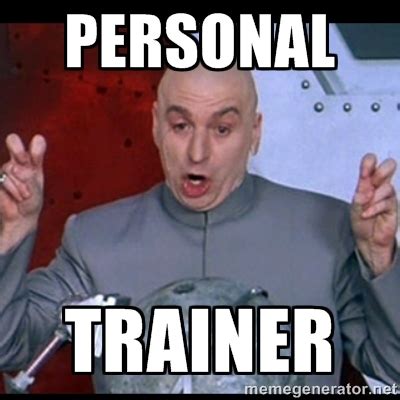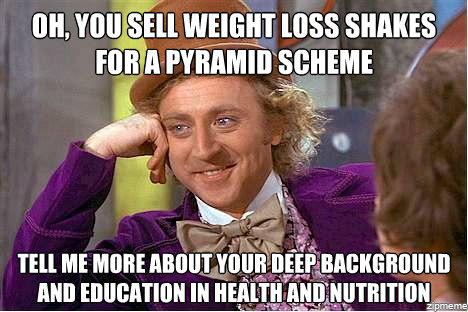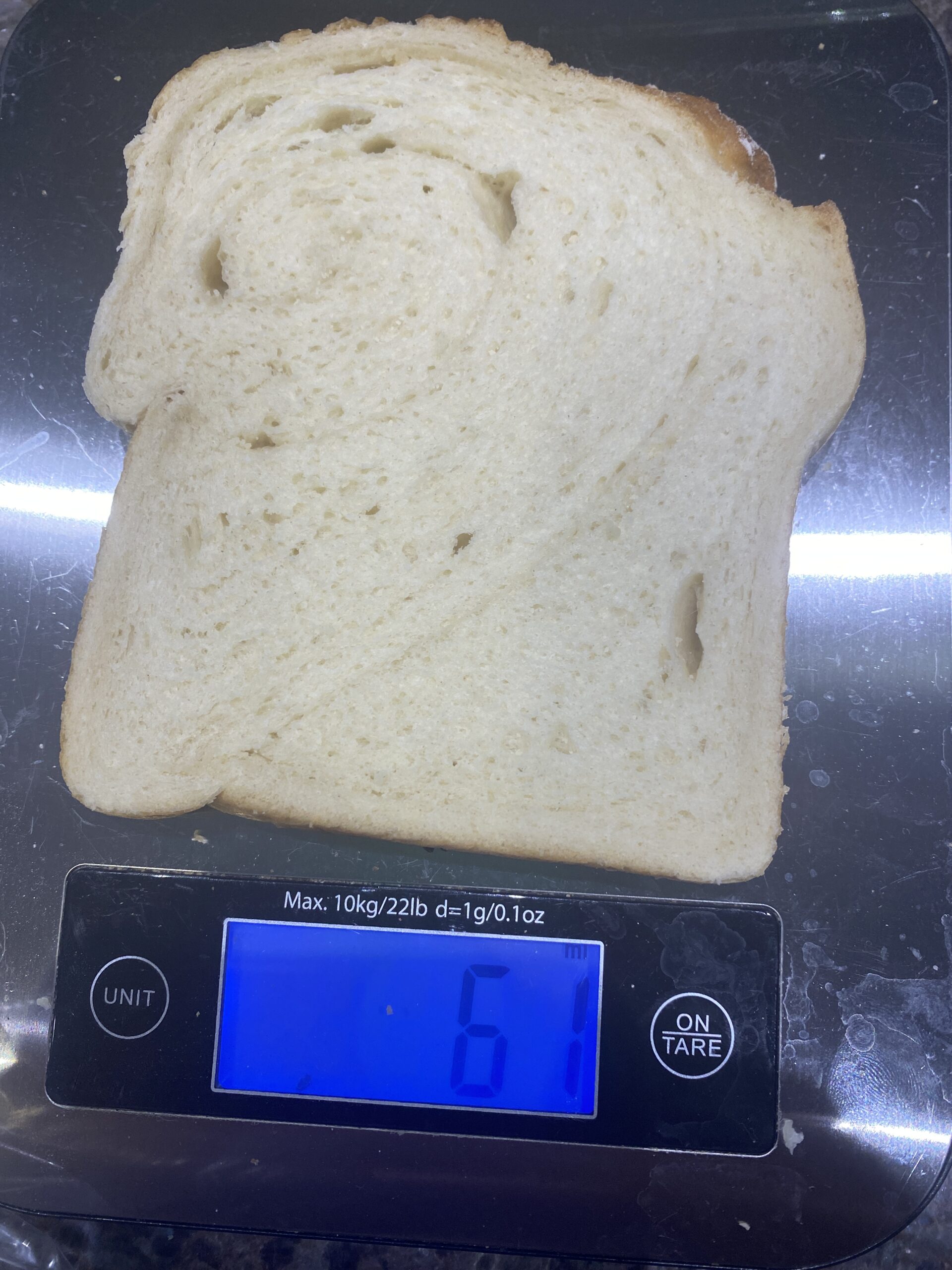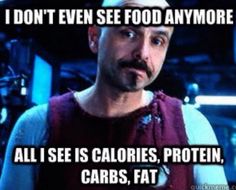First off, let me make a disclaimer that I am not currently qualified with any nutritional certifications nor am I a registered dietician. So anything stated below is based off training I’ve done and personal experience.
The nutrition industry much like the fitness industry is highly unregulated. Unless you have an undergraduate degree in dietetics and have written the board exam to become a registered dietician, anyone essentially can call themselves a “nutritionist” or “nutrition coach”. That being said, there are some great programs out there such as the Canadian School of Natural Nutrition that offers two and three year diploma type programs that are very well-rounded. It also should be noted that many insurance plans will cover the use of a registered dietician. Nutritionists are not covered.

When I was an educator for canfitpro, I told my students if they wanted to supplement their nutrition knowledge, Precision Nutrition was a great course to take to get a lot of great science (although I’m not sure if they still recommend their nutrition calculations based on body somatotypes – that was something I always thought was BS). But again, that program is affordable, science based and well-rounded in that it does not have any extremes and does not cut out entire food groups. However, it really is just a quick way to get into the “nutrition industry” and I believe there should be a lot more required to actually “coach” people.
The general public needs to know that unless a personal trainer has a formal nutritional certification they are AT NO TIME PERMITTED to offer specific nutritional information to their clients. This is a breach of our code of ethics. This goes across the board for whichever certification is held.

There are so many trainers out there who supplement their income by trying to sell MLM nutritional products/programs. This actually causes my blood pressure to rise to unhealthy levels. Its not to say that some of the products these companies sell are not quality supplements. However, people do not usually know what they are getting into, they are seriously overpriced and they do NOT teach nutrition. Run, please RUN away from any trainer that is trying to “sell you” on their bullshit.

Something else worth mentioning, especially during covid with so many fitness centres and group fitness classes not happening is the online fitness world. Personal trainers who are certified and actively training clients are required to purchase liability insurance whether training face to face OR online. I have always carried between 5 and 7 million dollars liability insurance over the years. This cost to me was around $400 per year. Some gyms cover the cost under a blanket insurance policy. You cannot get insurance without showing valid certification. So, if someone is “training” or doing group classes through Zoom as a fun hobby and someone was injured under their “instruction”, they can be held liable. There are some MLMs that call their sales people “wellness coaches” or whatever. There are also programs out there that are fitness based and call themselves trainers. I can guarantee these people are not purchasing liability insurance. So there is your information. Do NOT be afraid to ask. Another requirement for all certifying bodies is annual CPR recertification. Let me tell you how inconvenient it is to do a recert every year when your first aid ticket is good for up to three. But clients safety comes first.
Ok enough on that. As I was making my breakfast this morning, I had a piece of toast with peanut butter and jam. I bought some sourdough from Superstore (eek – so hard – I haven’t made my own in a weeks now). The serving size stated TWO SLICES (50g) was 130 calories. I pulled two slices out and was laughing because I knew it was way more than 50g So I pulled out my food scale. Two slices weighed 126grams!!!! This means the calories were over DOUBLE than what the nutritional label states. Also, did you know that there is a range of compliance that food companies can use? HERE is some information on that if you want to read. There can be ranges up to 20% accuracy on nutritional labels depending on the type of food category.

What does that mean? You could be eating more than double the calories of a lot of the foods you eat! I whole -heartedly believe that our society is overweight due to the fact that we don’t understand what a proper portion size looks like. Also because many packaged foods are created scientifically to make you want to eat the whole “bag”, “package”, “bar”, etc. But that discussion is for another time.
I personally worked with two different nutrition companies starting back in 2017 when I wanted shed some body fat while preserving muscle. This was when the macronutrient and flexible dieting was a big trend. I was highly successful both times I used a nutrition coach with a macro-counting/flexible dieting approach. Let me talk about some positives and some caveats.
First, macro-counting/flexible dieting teaches you what protein, carbs and fat and their portions look like. A good nutrition coach/dietician will be able to calculate your nutritional requirements based on many metrics such as age, weight, activity level, your day to day activity etc. You usually start with a baseline and if your goal is weight loss, then you are given weekly changes that are small and incremental so as not to stall progress and not to overwhelm you or make you starve.
Second, macro-counting does not exclude any food groups. Want a piece of chocolate cake? Work it into your macros, want a glass of wine on date night? Work it into your macros. It also works for people who are vegetarian and vegan. You don’t need special teas or potions or powders or to drink your ketones (roll my eyes to the back of my head). What you do needs to be sustainable for life. No quick fixes, no yo-yo diets. SUSTAINABLE!
Third, if you are going to invest in a nutrition coach, make sure you’re ready to commit. This is a huge problem with our society today. We have zero patience. Learning how to eat properly takes TIME, COMMITMENT, PATIENCE and CONSISTENCY. If you are not willing to put 90-100% into those four factors, please do not waste your money. I one-hundred percent believe people should invest in their health but its just going to chalk up to another failed attempt and lost finances if you are not 100% on board. Its so worth it, but you have to be in the right mindset.
Fourth. When I was working with nutrition clients the biggest thing that came up, especially with clients who were in the obese to morbidly obese range were emotional traumas. Many people who struggle with weight due to emotional issues 100% need to receive counselling with a registered counsellor, psychologist or psychiatrist. If any of you have ever watched an episode or 10 of “My 600 pound life” the theme that reveals itself very quickly is that there is often deep-routed emotional trauma that leads to emotional eating. Food used as a drug. While not classified as a true addiction, I fully believe in food addiction. The biggest problem with that is that we must eat to survive. We can’t just go to rehab for 30 days like a drug and alcohol addiction. We need to work on those traumas and learn how to live peacefully with food.
Fifth. I believe that everyone should eventually move to “Intuitive Eating”. Here is the website of the original author and founder of Intuitive Eating. I’ve read this book and I’ve also listened to many podcasts on Intuitive Eating. Again, my opinion only, I DO like a lot of the 10 principles listed in the book and the website, however, like all things fitness and nutrition, I find their theories a bit extremist. An example? Have you heard of the term “trigger food”? A trigger food is a food that when you start eating it, you either can’t stop eating it or it “triggers” a rollercoaster of gorging or bingeing. I believe in trigger foods. If I have brownies or sweets in the house readily available, I have a really hard time keeping my mitts off. I’m a person who can practice restraint but even with some foods its really hard. Intuitive Eating says that you should be able to have a bag of chips opened on the desk right beside you and you should be able to eat them when you want, how much you want and how often you want. They argue that you eventually won’t eat the whole bag of chips. You know its there, you know you can have them any time and you will learn to satisfy your cravings and appetite with practice. Maybe, maybe not. All I know is that for some people, including myself, its easier not to have certain foods just hanging around and “taunting me” haha! Intuitive Eating practitioners (who also must be a registered dietician to take the formal training from Evelyn Tribole) do not believe in counting or measuring food in any form. This is where I disagree – but again, just in my experience with myself and my clients and my friends who are and have been macro-counters. I believe we need to learn proper ratios and portions and THEN move to an intuitive eating approach.

Sixth. When you commit to a weight loss goal or hire a nutrition coach/dietician for whatever goal you have, shit and then get off the pot! People can become slaves to macro-counting. I worked with a coach for six months and then took a “diet break”. Six months later, I did another three months and then transitioned into maintenance. If I never see a bag of fucking riced cauliflower again, it will be too soon. In fact, there are a few bags in my freezer that are likely not consumable. You do not want to become a slave to your macro-tracking app and food scale for the rest of your life. It can create deeper issues of disordered eating and control issues. This can be tough for type A’s to transition, but you gotta. Its simply not good for mental health to count macro’s for the rest of your life.

My good friend and I both transitioned away from our macro apps during covid. This meant I could cook multi-ingredient meals again (I mean, you can do this with macro-counting but its very cumbersome), I could eat the same foods as my family again and I felt much more joy with eating again. I will occasionally track a day here or there just to see where I am at. I find that I tend to lean more into the carbs and slack off protein if I don’t do an occasional check-in.
Lastly, I should talk about eating for performance and training. This is where I am at now. If you are someone who trains hard and has performance goals and races, you may need to work with someone to dial in your nutritional requirements. Often times athletes do not eat enough or are eating the wrong ratios of things that cause performance issues, GI distress and recovery issues. Also, things change especially for women when they hit the peri-menopause/menopause stage (hello me!). After working with a sports medicine doctor, she said likely that what I needed most were some “little tweaks” to my nutrition to help me start feeling better especially with my recovery. Now, after reading the book ROAR and listening to the Hit Play Not Pause podcasts AND taking Dr. Stacy Sims course, “Women Are Not Small Men”, I am seeing some major improvements in my recovery and sleep! Little things! Food is AH-MAZ-ING!!!
Ok, I am going to need to write a coles notes version of this because its gone on much too long but I’m super passionate about this. So I’ll summarize my OPINIONS below.
Feel free to reach out with any questions you have. The hardest part about this industry is filtering out all the shit.
Coles Notes Version
- The Fitness and Nutrition industries are highly unregulated. A personal trainer cannot provide meal plans or anything more than basic suggestions unless they have a nutritional certification or are a registered dietician.
- Your personal trainer should have liability insurance unless their employer holds it for them. This means if you’re following some sort of online live workouts with a “fitness coach” make sure they are certified and have insurance as well.
- Don’t get sucked into MLMs. A personal trainer should not be trying to “sell” their clients nutritional supplements of any kind. This breaks the code of ethics we are bound to.
- Weight loss happens as a result of calorie deficits – period. No matter what “plan” you follow, if you’re losing weight, you’re in a deficit. You don’t need to waste money on any teas, powders, ketones, or other “proprietary blends” to achieve weight loss. Nor do you need to cut out whole food groups.
- Our society needs to get back to basics. Eat real food, learn how to navigate nutrition labels, portion sizes and how to fuel for health and performance. Food should be for fuel and pleasure. Life involves celebration and that involves food. Its to be enjoyed and not to be feared.
- If you want to lose weight, I recommend hiring a nutritionist or a registered dietician to help you learn. This requires TIME. PATIENCE. PRACTICE and CONSISTENCY. Its not easy – so be ready to commit before you invest.
- If you’re an athlete whether elite or weekend warrior, find a doctor who will help you with determining your hormones, mineral levels, especially iron stores and then find a qualified sports nutrition or dietician to help you meet your needs.
- Please just do not get sucked into gimmicks or plans from people who do not have REAL qualifications. You’re wasting your money and they are absolutely not sustainable.